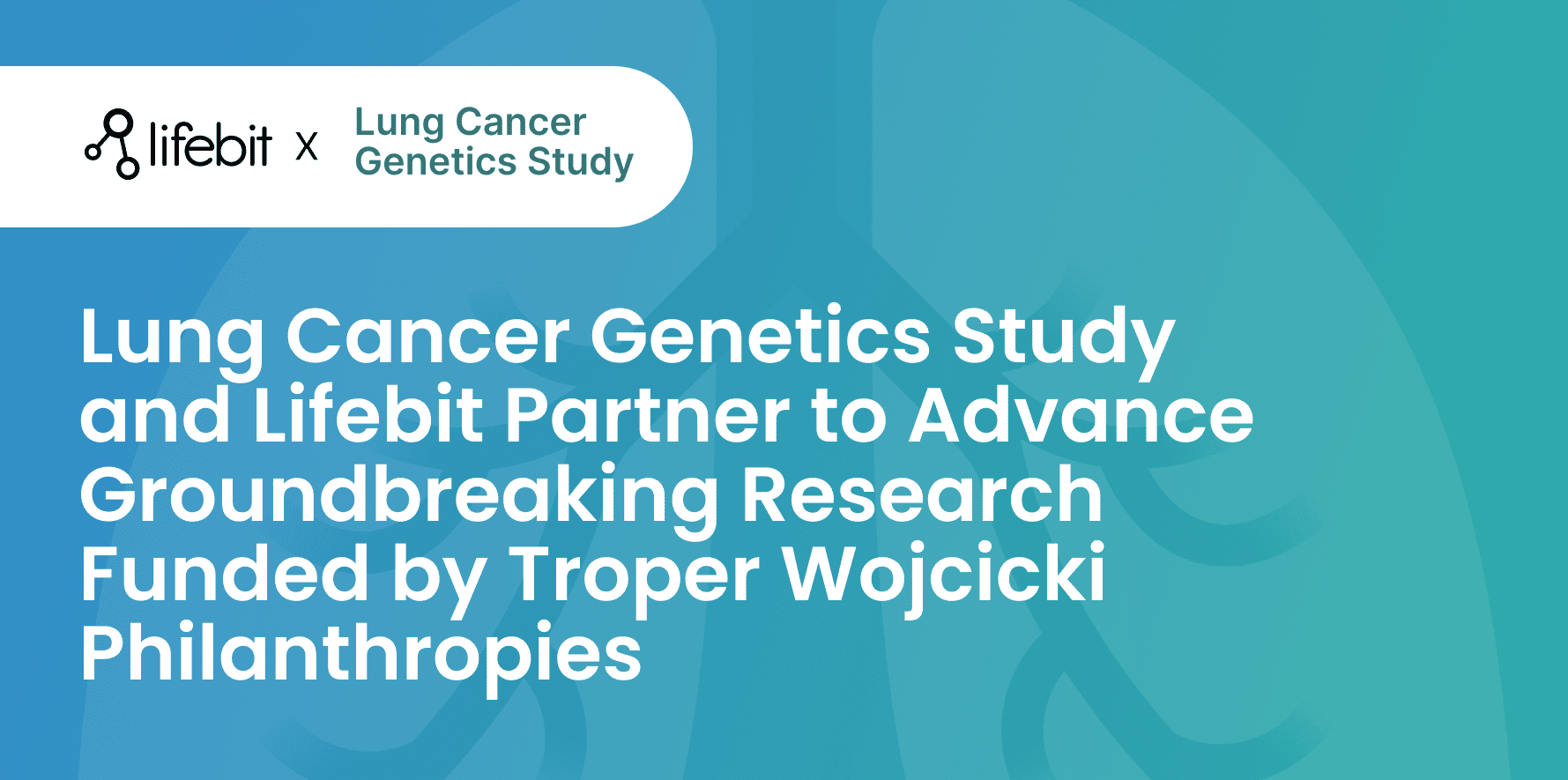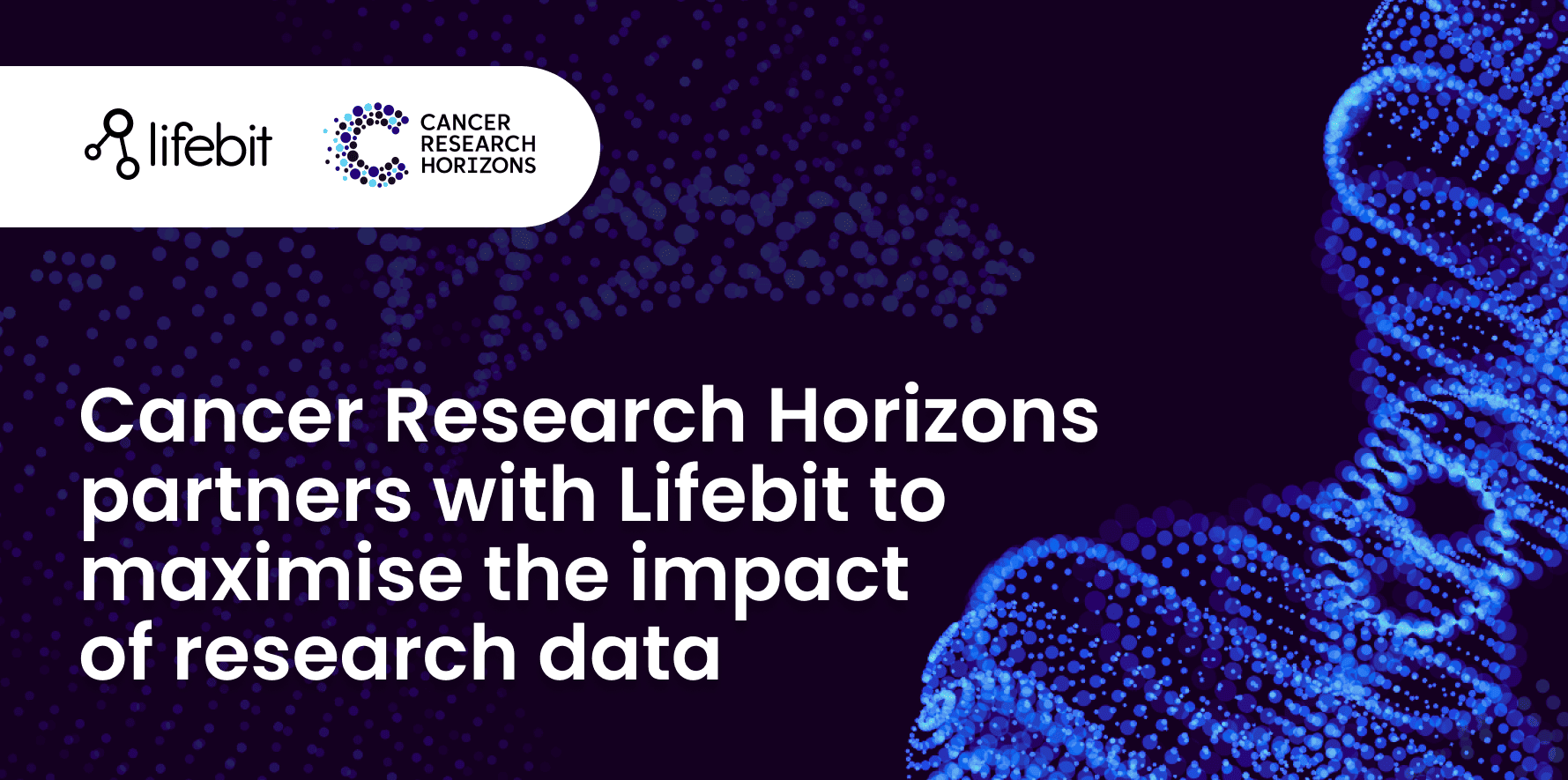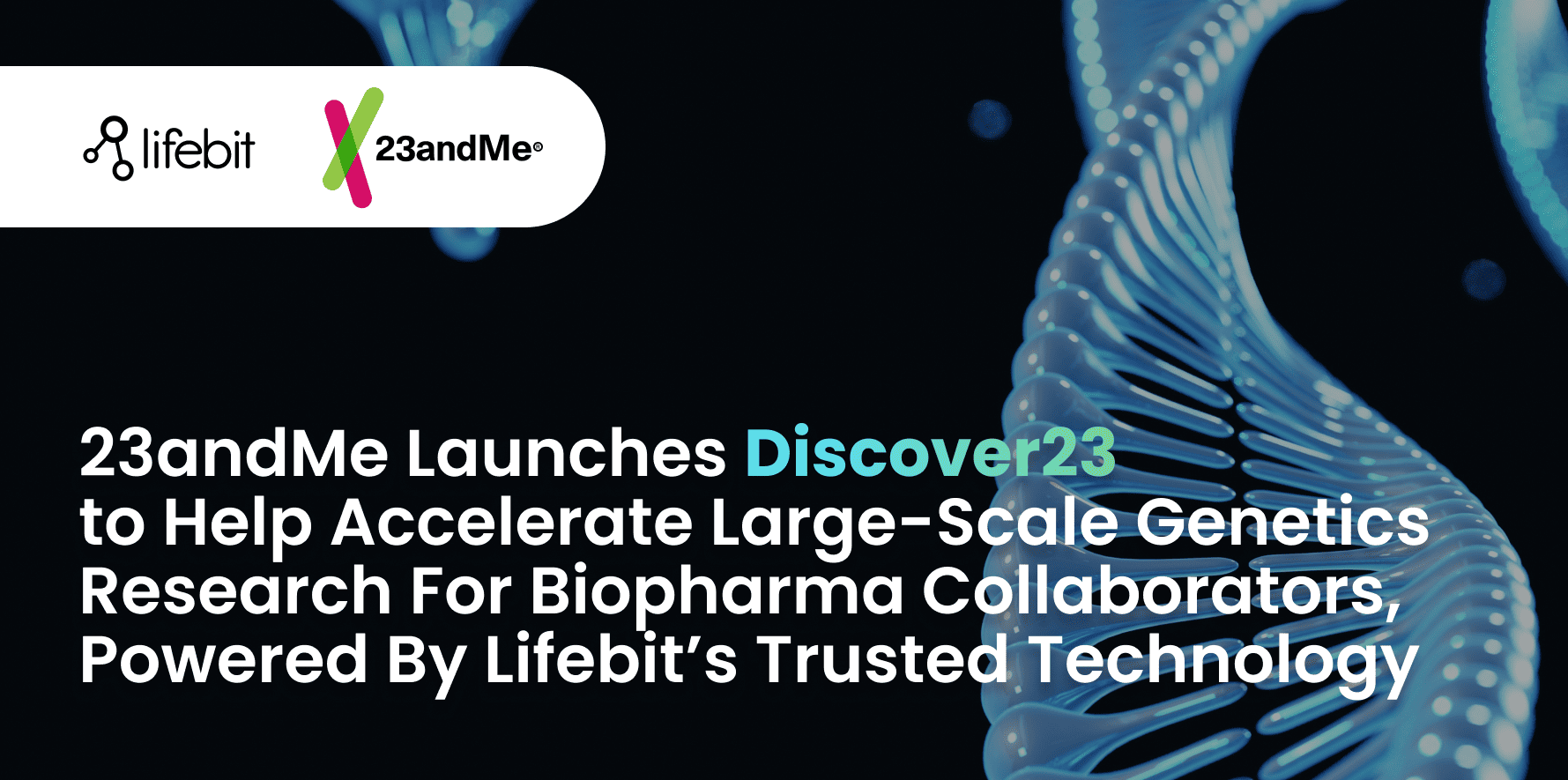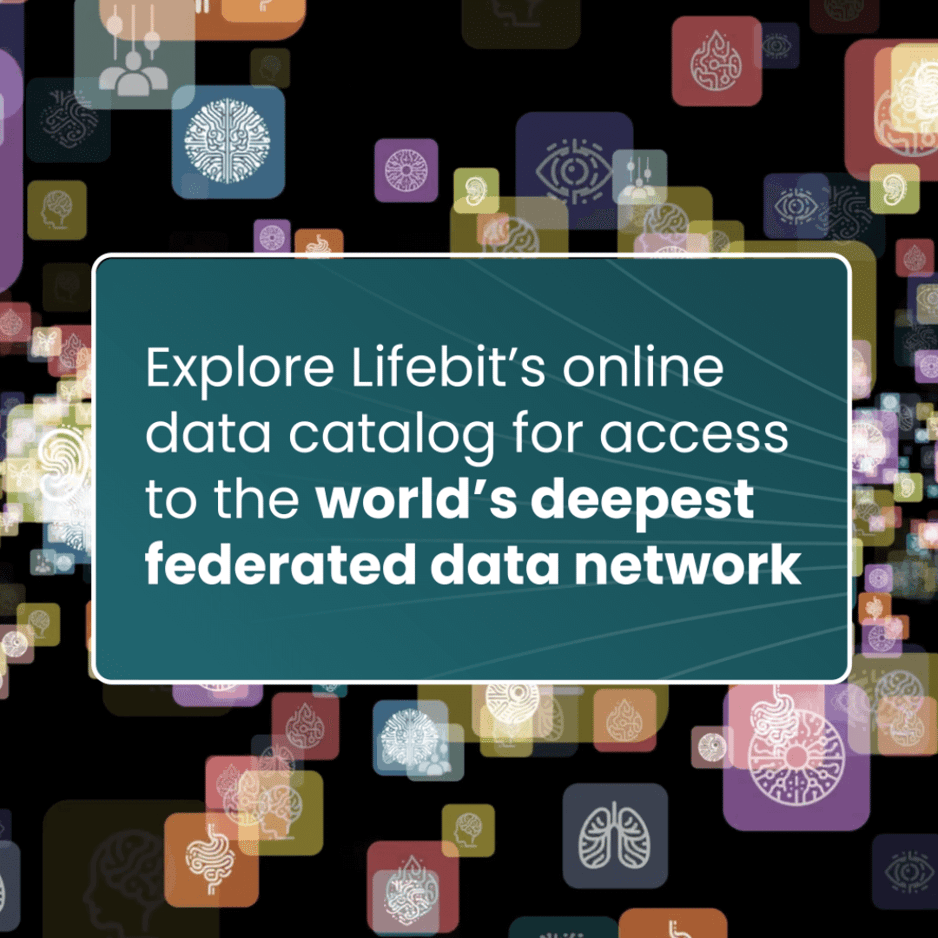

Lifebit Empowers Pharma Industry with Unprecedented Access to Multi-Omic and Health Data from Over 100 Million Patients Worldwide
Lifebit
LONDON, 26 February 2024
Global biotechnology leader, Lifebit, achieves a groundbreaking milestone, unlocking the potential of diverse data to accelerate pharmaceutical research and development.
Lifebit, a pioneer in biomedical data technology and services, reaches a milestone of 100 million patients in its multi-omic and health data catalog. This marks a pivotal moment in advancing research and development capabilities within the pharmaceutical industry through data from Lifebit's innovative federated data partnerships.
Traditional drug development processes are slow, expensive and inefficient. Since the 1950s, R&D efficiency has declined, with an 80-fold drop in drug productivity and the cost to develop new drugs doubling every 9 years1. The future of drug development can be unlocked by a significant increase in secure access to population-level standardized clinical and multi-omic data.
Lifebit's 100 million patient data catalog includes comprehensive multi-omic and health datasets, representing over 200 health conditions. Uniquely, these data cover disease areas posing the greatest threats to human health, including cancer, cardiovascular, respiratory, neurological, diabetes, and rare diseases.
With data as the new productivity driver2 for drug development, Lifebit’s deep and diverse data network offers unprecedented opportunities for R&D, enabling faster identification of drug targets and more efficient clinical trials.
This data milestone aligns with the recent launch of Lifebit's Platform 2.0, an enhanced federated end-to-end trusted research environment designed to maximize research discoveries whilst ensuring ultimate data privacy and security. The platform revolutionizes research for precision medicine, offering advanced federated analytics, automated AI-powered data standardization, seamless collaboration across disparate datasets, no-code cohort building, and data-driven drug discovery capabilities.
Combined with access to diverse data from over 100 million patients, this is enabling researchers worldwide to securely connect and analyze valuable real world, clinical and genomic data in a compliant manner.
Lifebit collaborates with leading healthcare providers, non-profits, research institutions, and population genomics initiatives across five continents to make their data accessible for R&D safely and securely.
Dr. Maria Dunford, CEO of Lifebit, said:
"Access to high volumes of diverse data is crucial for understanding diseases and discovering new drugs and treatments, yet it remains a significant barrier in the pharmaceutical industry.
Our data catalog of data from over 100 million patients represents the deepest and most diverse clinico-genomics data resources in the world and we are excited to share this with the industry. It truly has the potential to be transformative for our pharma partners to advance precision medicine and generate new discoveries that save lives.
We are incredibly proud to support our federated data partners to unlock the potential of their data with the reassurance of protecting the privacy of patient participants.”
Lifebit's extensive data catalog is available on its website at www.lifebit.ai/lifebit-data-catalog
For media inquiries, please contact:
Amanda White by email at amanda@lifebit.ai.
About Lifebit
Lifebit is a global leader in genomics and health data software, empowering organisations across the world to transform how they securely and safely leverage sensitive biomedical data. We are committed to solving the most challenging problems in precision medicine, genomics and healthcare with a mission to create a world where access to biomedical data will never again be an obstacle to curing diseases. Learn more at www.lifebit.ai.
Interested in learning more about Lifebit’s solutions?
References
Featured news and events

2025-02-11 08:39:49

2025-01-28 08:00:00

2025-01-23 09:07:20

2025-01-08 13:58:41

.png)
